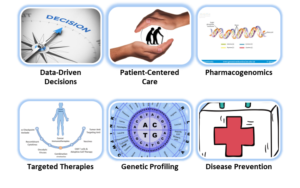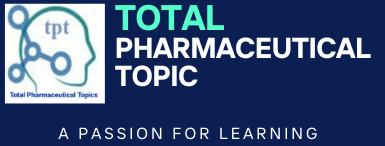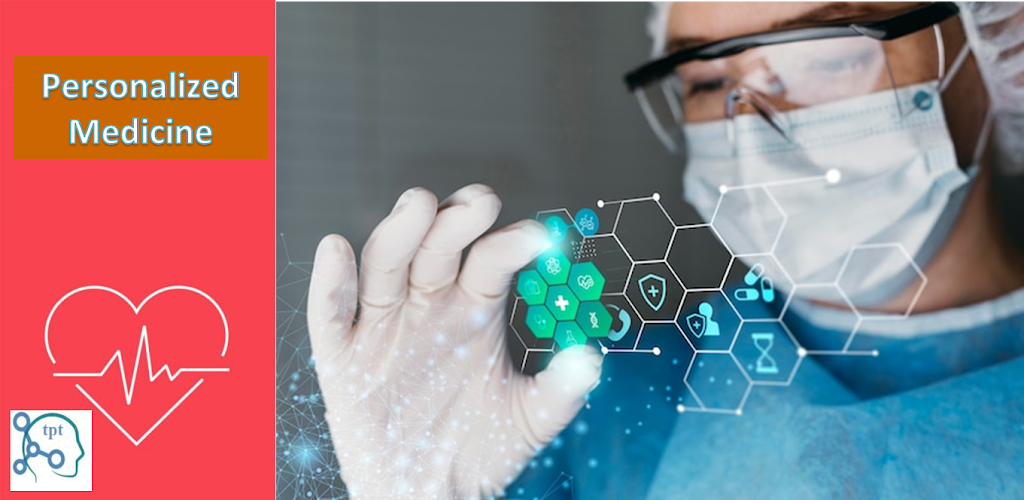This is a revolutionary approach in healthcare that customizes medical treatment to the individual characteristics of each patient.
 |
| Fig.: – 01 Personalized Medicine |
In other words, Personalized medicine also known as precision medicine. It involves the customization of healthcare, with decisions and treatments being tailored to the individual patient by integrating genetic, environmental, and lifestyle factors.
KEY ASPECTS OF PERSONALIZED MEDICINE
Genetic Profiling:
This can lead to more effective and targeted therapies. Patient’s genetic makeup helps healthcare provider to;
✅ Predict; How they will respond to specific medications,
✅ Identify; Their risk of developing certain diseases, and
✅ Determine; The best treatment options.
Disease Prevention:
✅ Personalized medicine aims to identify risk factors for diseases before they develop.
✅ Genetic testing can reveal predispositions to conditions such as cancer, cardiovascular diseases, and diabetes, allowing for proactive monitoring and preventive measures.
Targeted Therapies:
✅ Targeted therapies represent a significant advancement in cancer treatment.
✅ Type of medical treatment specifically designed to target and attack cancer cells based on the unique genetic and molecular characteristics of the tumour
✅ Offering a more precise, effective, and less toxic approach compared to traditional treatments.
Pharmacogenomics
✅ This is the study of how genes affect a person’s response to drugs.
✅ By understanding an individual’s genetic profile, doctors can prescribe medications that are more effective and have fewer side effects.
 |
| Fig.: – Key aspects of personalized medicine |
Patient-Centered Care:
Personalized medicine promotes a more holistic approach to patient care considering;
✅ Unique biological,
✅ Environmental, and lifestyle factors that contribute to an individual’s health
Data-Driven Decisions
✅ Advances in technology, such as big data analytics and artificial intelligence, enable the integration and analysis of vast amounts of data from various sources.
(e.g., genetic, clinical, and lifestyle information),
Conclusively, personalized medicine i.e. Precision medicine represents a shift from the traditional one-size-fits-all approach to a more individualized strategy in healthcare, with the goal of improving patient outcomes and quality of life.
What does SISPQ stands for? In Pharmaceutical Industry Pharmaceutical Science: What You Need to Know?
What is the difference between clinical trial & clinical research? Pharmaceutical Drug substance (API) and Drug Product: Definition Research and Development: Definition

